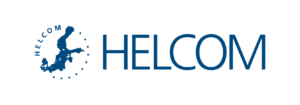Dr Susanne Heimüller works for the Federal Maritime and Hydrographic Agency (BSH) and is the Chair of HELCOM Maritime Working Group
Overall, what’s the current state of the management of wastewater from ships in the Baltic Sea, also compared to other seas?
The Baltic Sea is a highly sensitive sea area and eutrophication is one of its major problems. Therefore, following a lengthy preparation process within HELCOM, the International Maritime Organization (IMO) designated the Baltic Sea as “Special Area for sewage discharges from passenger ships under Annex IV of the MARPOL Convention.” Worldwide, it is the only region so far regulating these discharges.
The more stringent Special Area regulations, which already applies to newly built vessels, require passenger ships to either discharge their sewage into port reception facilities (PRF) or to treat sewage with an advanced on-board sewage treatment plant capable of reducing nutrients to a safe level for discharging at sea.
This is an important step forward towards a healthier Baltic Sea, while, at the same time, showing how a MARPOL Annex IV Special Area may be implemented.
Why the Technical Guidance? What’s its objective, background?
Handling big volumes of sewage in ports requires new and innovative approaches. Initial experiences show that there is no “one size fits all” solution. Almost each port, with its own, specific infrastructure requirements, needs a tailored solution.
To facilitate proper management of wastewater from ships, we therefore developed the “Technical Guidance for the Handling of Wastewater in Ports of the Baltic Sea Special Area under MARPOL Annex IV.”
The Technical Guidance sets out probable problems a port may encounter, and presents possible solutions on the different aspects of the management of wastewater from ships, be they of infrastructural or technological nature, or related to planning and communication.
Who is the Technical Guidance meant for?
The Technical Guidance offers recommendations to port operators and shipping companies. It can also be useful for administrations and municipal wastewater companies dealing with the issue.
How do you expect the Technical Guidance to improve wastewater management in the Baltic Sea?
The Technical Guidance will hopefully aid all involved stakeholders to better understand the major and various challenges ports and ships face when it comes to managing wastewater. Awareness and good communication is a first step in working together on practical solutions, and ultimately, on improving the environment of the Baltic Sea.
Download the Technical Guidance:

